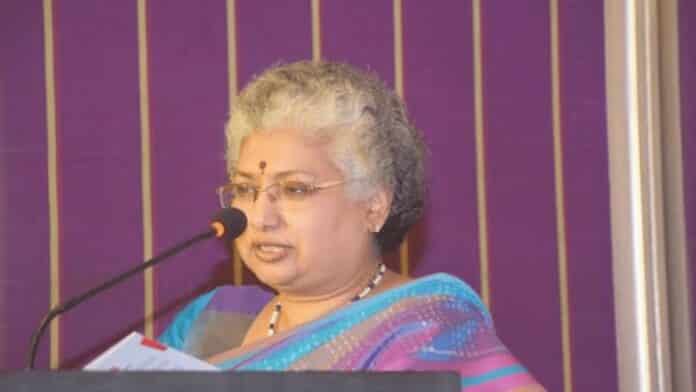Supreme Court judge Justice B V Nagarathna on Sunday called on the competent authorities to urgently consider framing laws to tackle deepfakes and artificial intelligence (AI)-enabled child abuse, warning that the evolving technology poses unprecedented threats to the safety of children, especially girls.
Speaking at the closing session of the national annual stakeholders consultation on “Safeguarding the Girl Child: Towards a Safer and More Enabling Environment for Her in India”, organised by the Juvenile Justice Committee of the Supreme Court in association with UNICEF India, Justice Nagarathna underlined the dual nature of technology as both a “promise and a peril.”
“The various dangers posed by evolving technologies may seem like a Sword of Damocles. To this end, the need of the hour is for the competent authorities to look into legislating deepfakes and AI-enabled child abuse; mandate 24-hour child sexual abuse material reporting, platform-level age-gating, and national tracking of response timelines,” she said.
Justice Nagarathna, who chairs the Supreme Court’s Juvenile Justice Committee, suggested the apex court may consider creating an “AI Cybercrime Advisory Committee on Girl Child” to examine how AI and emerging technologies affect the girl child and recommend ways to mitigate these risks.
She stressed the importance of judicial training and capacity-building on AI, to equip judges and other stakeholders to respond effectively to the harms arising from technological misuse.
With adequate vigilance, she said, instances of child trafficking and violence could be intercepted before they occur. She also highlighted the need for stringent enforcement of existing laws to curb female foeticide and infanticide, noting that legislation alone cannot transform societal attitudes.
“There is a further need to raise awareness and increase sensitisation among prospective parents as to the various opportunities, benefits and options available to young girls today, and how these can be accessed if the parents are sufficiently committed to dispel the notion of the girl child being a burden,” she said.
Justice Nagarathna linked the empowerment of girls to access to nutrition and education. She called for promoting nutritional literacy in schools, introducing front-of-pack warning labels, taxing unhealthy products, and banning junk food marketing around schools, with annual compliance audits.
“To save a girl child is to save a generation,” she said, urging finalisation of a national definition of HFSS (High in Fat, Sugar, and Salt) foods.
She emphasised that education plays an emancipatory role by promoting social mobility and awareness of rights, and called for pathways to help children affected by violence, trafficking, child marriage and other social evils return to mainstream education.
For more effective anti-trafficking efforts, she recommended professionalising investigations using forensic and financial tracing, and institutionalising rehabilitation as a state duty with measurable recovery outcomes.
She urged stronger survivor-centred responses, ensuring that every district has access to child- and gender-sensitive medical, psychosocial, and legal services.
On child marriage, she said prevention and response work best at the community level, involving panchayats, local communities and designated officials, rather than working in isolated silos.
Justice Nagarathna stressed the need for empathy-based police training and judicial proceedings, regular inter-department coordination, and annual reviews of survivor satisfaction and conviction rates to ensure compassionate justice for children.
She also called for measurable monitoring systems to address legal ambiguities, enforcement gaps and misuse of technology in sex-selection practices.
“Data is a valuable resource and we must not shy away from accurate reporting of statistics, even if they paint a negative picture,” she said, adding that periodic institutional reviews should assess improvements in sex ratios at national, state and local levels.
Concluding her address, Justice Nagarathna said that the empowerment of the girl child is a cornerstone of building a more just and equitable society, and that special attention must be given to girls from marginalised communities, those with disabilities, or from economically backward backgrounds, in line with constitutional guarantees and international covenants.




